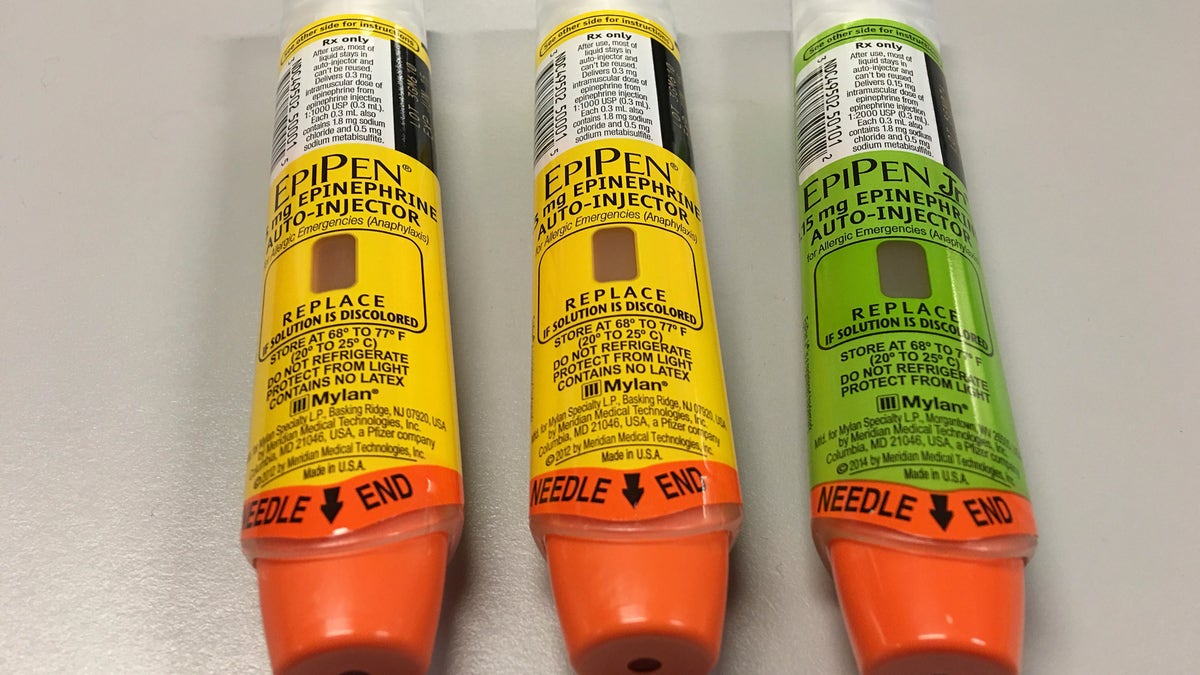
EpiPen auto-injection epinephrine pens manufactured by Mylan NV pharmaceutical company for use by severe allergy sufferers are seen in Washington, U.S. August 24, 2016. REUTERS/Jim Bourg - RTX2MWTD
The price of EpiPens has increased more than 400 percent since 2007. People who need to keep them on hand — often because they may need the emergency drug in case they have a life-threatening allergic reaction — brought the price increase to light, and eventually it reached Congress: In a letter to Mylan, the company that makes EpiPens, Sen. Charles Grassley of Iowa has now asked the company to explain its pricing.
But how do EpiPens work?
EpiPens are a type of epinephrine auto-injector, which means they work by automatically injecting a dose of the hormone epinephrine (also called adrenaline) into a person's body. This could be done, for example, during a severe allergic reaction called anaphylaxis.
In a person with anaphylaxis, the immune system releases a flood of chemicals in response to an allergen, according to the Mayo Clinic. These chemicals can cause an onslaught of severe and life-threatening symptoms throughout the body, including a drop in blood pressure and constricted airways, the Mayo Clinic says.
A person can die from anaphylaxis if his or her heart stops beating or the person stops breathing. These symptoms can come on quickly, so it's important to get a person medical treatment immediately.
Epinephrine works by reversing the symptoms of anaphylaxis. For example, a person's blood pressure plummets during an anaphylactic reaction because the blood vessels relax and dilate — epinephrine causes the blood vessels to constrict, which raises blood pressure, according to Mylan, the maker of EpiPens.
In addition, anaphylaxis can cause a person's airways to constrict, making it difficult for that person to breathe. Epinephrine relaxes the muscles of the airways so that the person can breathe, according to Mylan. Epinephrine also increases a person's heart rate, which helps improve blood flow.
Originally published on Live Science.
Copyright 2016 LiveScience, a Purch company. All rights reserved. This material may not be published, broadcast, rewritten or redistributed.








































